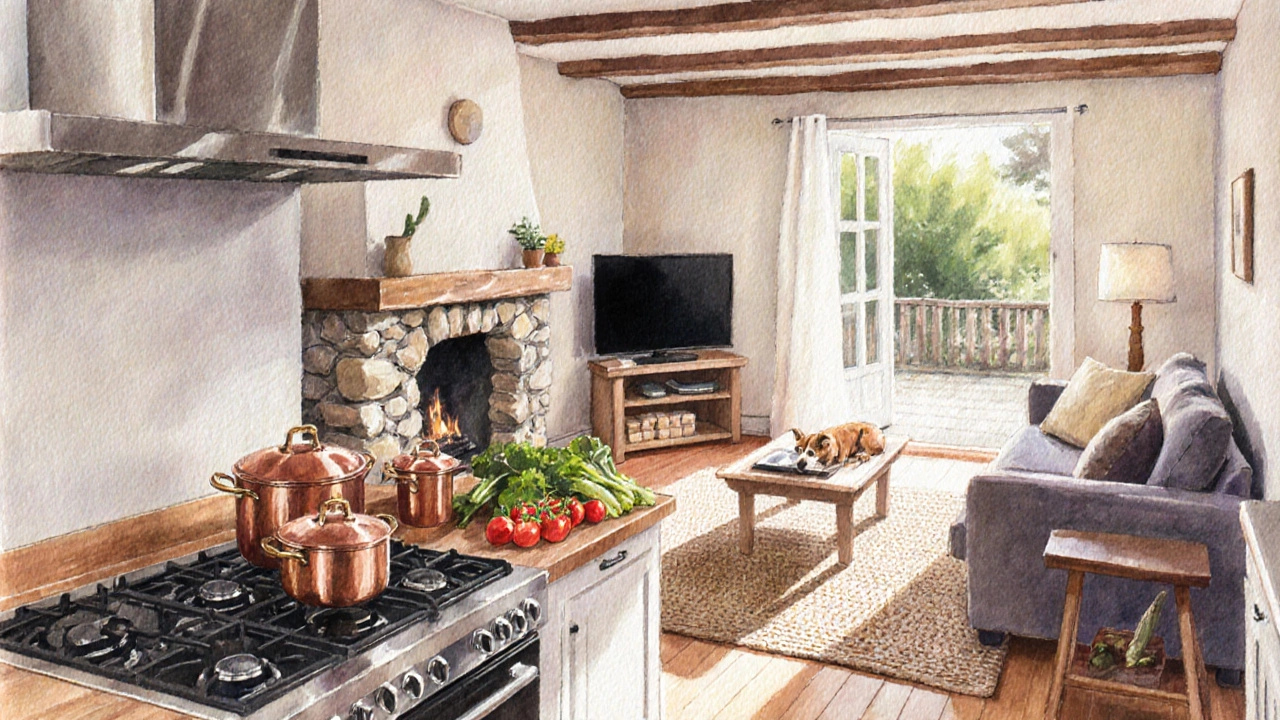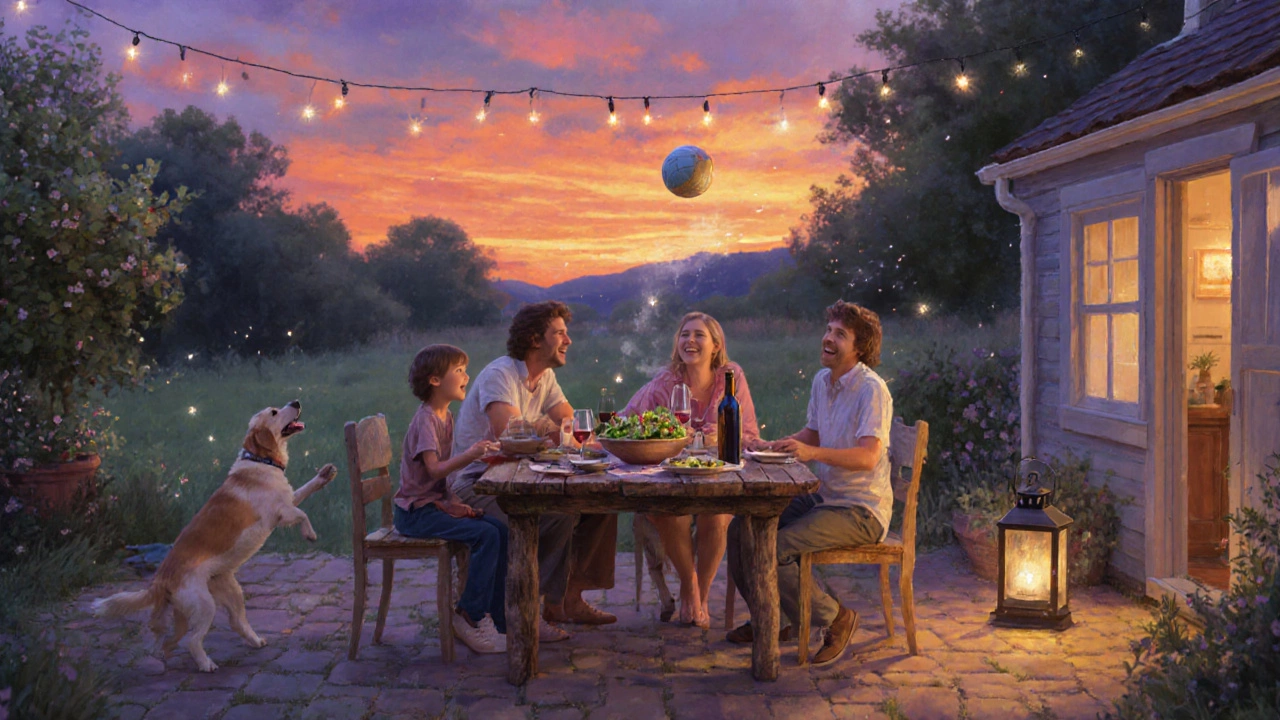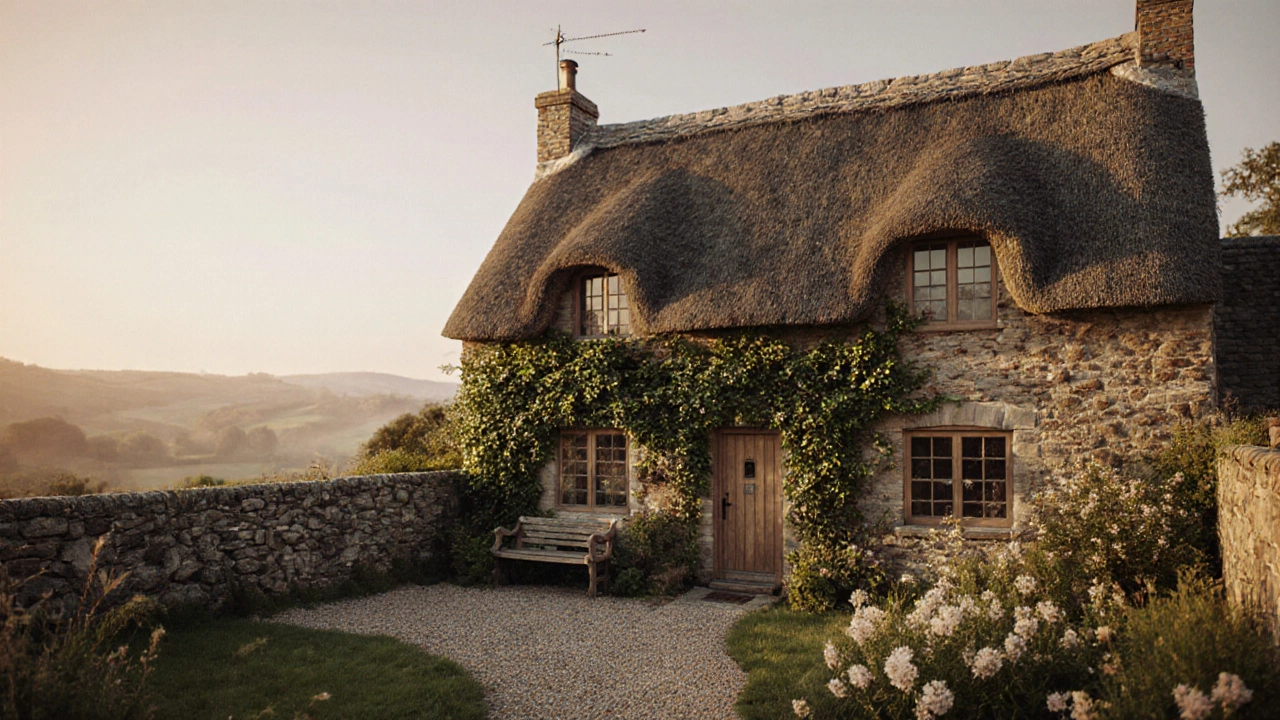Cottage Cost Calculator
Calculate Your Stay Cost
Estimate total cost including base price, cleaning fees, deposits, and optional charges
Estimated Total Cost
Enter your values above to see your total cost
Key Takeaways
- Self-catering cottages are independent holiday homes where guests handle their own meals.
- They differ from hotels and B&Bs by offering full kitchen facilities and private living space.
- Typical amenities include a fully equipped kitchen, living area, and often a garden or patio.
- Booking can be done via dedicated cottage rental platforms or mainstream sites like Airbnb and Booking.com.
- Understanding local rules and safety standards (especially in the United Kingdom) helps avoid surprises.
What is a Self-catering Cottage?
When you hear the term self-catering cottages, picture a cosy house tucked in the countryside, equipped with a kitchen, a living room, and a bedroom or two. In other words, it's a holiday home you rent, but you take charge of meals, cleaning, and daily routine, just like you would at home.
Self-catering cottage is a type of vacation accommodation that provides guests with a fully equipped kitchen and private facilities, allowing them to prepare and enjoy their own meals. This model grew out of the traditional cottage holiday tradition in the United Kingdom, where families would rent a farm or country house for the summer and cook on site.
How Self-catering Cottages Differ from Hotels and B&Bs
Hotels typically offer daily housekeeping, room service, and on‑site restaurants. A Bed and Breakfast (B&B) provides a private bedroom plus a shared breakfast, but the kitchen is usually off‑limits to guests. Self‑catering cottages give you the freedom to shop at local markets, cook whatever you like, and occupy the entire property.
Below is a quick side‑by‑side comparison:
| Feature | Self-catering Cottage | Hotel | Bed & Breakfast |
|---|---|---|---|
| Kitchen | Full kitchen (stove, oven, fridge, utensils) | Room service or on‑site restaurant only | Usually no guest access |
| Privacy | Entire property to yourself | Private room, shared corridors | Private room, shared common areas |
| Cleaning | Self‑cleaned (some owners provide mid‑stay cleaning) | Daily housekeeping | Daily room cleaning, plus breakfast service |
| Cost per night | Often lower for families or groups | Higher, especially in city centres | Mid‑range, varies by location |
| Local experience | High - you shop and cook locally | Limited - meals are standardized | Moderate - breakfast often features local produce |
Typical Features & Amenities
Most self‑catering cottages come with these basics:
- Fully equipped kitchen - stovetop, oven, microwave, dishwasher, coffee maker, and a set of cookware.
- Living room with television and often a fire‑place.
- One or more bedrooms with linens supplied.
- Bathroom(s) with towels and basic toiletries.
- Outdoor space - garden, patio, or balcony, sometimes a BBQ.
- Wi‑Fi (though speed can vary in rural areas).
- Parking - usually free on‑site.
Higher‑end cottages may add hot tubs, private pools, or pet‑friendly policies. Always check the listing description for the exact inventory.

Booking Process & Where to Find Cottages
There are three main channels to secure a self‑catering cottage:
- Specialist cottage rental websites - platforms such as Cottages.com focus exclusively on UK and Irish properties, offering detailed filters for pet‑friendly, wheelchair‑accessible, or beachfront locations.
- General vacation‑rental marketplaces - sites like Airbnb and Booking.com list thousands of cottages worldwide. Their review system helps gauge host reliability.
- Direct owner or local agency bookings - many owners run their own websites or partner with regional tourism offices (e.g., VisitScotland promotes cottage rentals across the Scottish Highlands).
When you find a cottage you like, follow these steps:
- Read the full description and the house rules - look for extra fees (cleaning, linen, deposit).
- Check the calendar for availability and minimum stay requirements.
- Contact the owner or host with any questions before confirming.
- Secure the booking with a credit card or PayPal, and keep the confirmation email.
- Review the cancellation policy - flexible options are worth a slight price premium.
Pricing, Value, and What to Expect
Self‑catering cottages are priced per night, but the total cost often includes a cleaning fee, a refundable security deposit, and sometimes a linen charge. As a rule of thumb:
- £80‑£150 per night for a two‑bedroom cottage in rural England.
- £150‑£250 per night for a beachfront property in Wales or Scotland.
- £250+ per night for luxury cottages with hot tubs, sea views, or historic features.
Because you cook your own meals, a family of four can save up to 40% compared to dining out every night at a hotel or restaurant. The extra space also makes it easier for kids to play and for adults to unwind.
Legal, Safety, and Local Regulations
In the United Kingdom, cottage owners must meet fire‑safety standards, provide carbon monoxide detectors, and ensure gas appliances are serviced annually. Some regions (e.g., the Scottish Highlands) have strict planning permissions that limit the number of guests.
Guests should also be aware of:
- Noise curfews - many rural areas enforce quiet hours after 10 pm.
- Waste disposal - you may need to separate recycling or use communal bins.
- Pet policies - not all cottages allow animals; those that do often charge a cleaning surcharge.
Reading the house rules carefully can prevent unexpected fines.

Pros and Cons - Quick Verdict
Pros:
- Flexibility to cook, set your own schedule, and enjoy privacy.
- Often more space for families or groups.
- Closer connection to local culture - shop at farmers' markets, explore nearby villages.
Cons:
- Responsibility for cleaning and meal prep.
- Potentially limited on‑site assistance compared to hotels.
- Variable Wi‑Fi quality in remote locations.
If you love independence and enjoy cooking, the benefits usually outweigh the extra effort.
Frequently Asked Questions
Do I need to bring my own kitchen utensils?
Most cottages provide basic pots, pans, plates, glasses, and cutlery. If you have special cookware (e.g., a wok or baking tray), it’s safe to bring it.
Can I book a self‑catering cottage for a single night?
Many owners set a minimum stay of two or three nights, especially in peak season. However, last‑minute deals sometimes allow a one‑night stay.
Are pets always welcome?
Pet policies vary widely. Look for listings that explicitly say "pet‑friendly" and check any extra cleaning fees.
What happens if something breaks during my stay?
Most owners expect guests to report issues promptly. Minor damages may be covered by the security deposit, but many hosts are flexible and will replace items without charge.
How do I find local grocery stores?
Cottage listings often include a "local area guide" with the nearest supermarkets, farm shops, and markets. Google Maps and the host’s recommendations are also handy.
Next Steps - Getting the Most Out of Your Cottage Stay
1. Decide on your ideal location - coastal, mountain, or countryside. 2. Set a budget, remembering to include cleaning and deposit fees. 3. Use a specialist site like Cottages.com for targeted searches, then cross‑check on Airbnb for extra reviews. 4. Read the house rules thoroughly, especially regarding pets and check‑out procedures. 5. Pack a small set of favorite spices and a reusable grocery bag - they’ll make cooking in a new place much easier.
Enjoy the freedom, the fresh air, and the chance to live like a local for a few days. That’s the real magic of self‑catering cottages.

